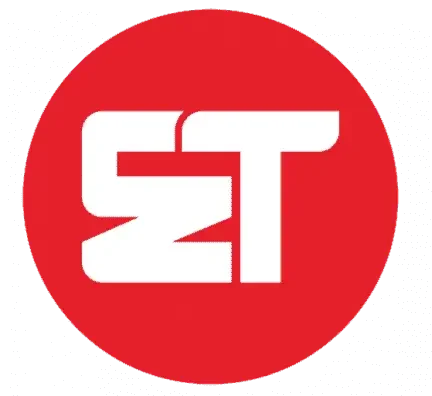ISO (International Organization for Standardization) is an international body responsible for developing and publishing international standards. These standards are designed to ensure that products, services, and systems meet specific criteria for quality, safety, and efficiency globally. This article provides a detailed explanation of various ISO standards, their applications, and their benefits.
What is ISO?
ISO is an international organization that creates global standards for a wide range of industries and technologies. Based in Geneva, Switzerland, ISO collaborates with national organizations worldwide to develop and update standards that support quality and safety across different sectors. ISO standards ensure that products and services not only meet customer expectations but also comply with applicable regulatory requirements.
Types of ISO Standards
Here is an in-depth look at some of the most commonly applied ISO standards:

Read More: SNI Certification
1. ISO 9001: Quality Management Systems (QMS)
ISO 9001 is one of the most widely recognized and implemented standards for quality management systems. It sets out the requirements for a quality management system that helps organizations ensure their products and services consistently meet customer and regulatory requirements.
- Objective: To enhance customer satisfaction by ensuring consistent quality of products and services. ISO 9001 promotes continuous improvement through a process-based approach.
- Key Features:
- Focus on customer satisfaction
- Process-based approach to quality management
- Risk and opportunity assessment
- Corrective and preventive actions
- Benefits: Improved operational efficiency, consistent product quality, and higher customer satisfaction.
2. ISO 14001: Environmental Management Systems (EMS)
ISO 14001 is designed to assist organizations in managing their environmental impacts and ensuring compliance with environmental regulations. This standard helps organizations plan, implement, monitor, and improve their environmental management systems.
- Objective: To reduce environmental impacts from organizational activities, enhance environmental awareness, and comply with environmental regulations.
- Key Features:
- Environmental risk assessment and management
- Setting environmental objectives and targets
- Monitoring and reporting environmental impacts
- Continuous improvement in environmental performance
- Benefits: Waste reduction, resource efficiency, and enhanced public and customer reputation.
3. ISO 45001: Occupational Health and Safety Management Systems (OHSMS)
ISO 45001 is an international standard for occupational health and safety management systems. It is designed to create a safe and healthy work environment by identifying and managing health and safety risks.
- Objective: To reduce workplace accidents and illnesses, and improve employee health and safety.
- Key Features:
- Hazard identification and risk assessment
- Setting health and safety objectives and targets
- Employee involvement in the management system
- Auditing and management review for improvement
- Benefits: Safer work environments, reduced accident rates, and compliance with health and safety regulations.
4. ISO 27001: Information Security Management Systems (ISMS)
ISO 27001 specifies the requirements for an information security management system. It helps organizations protect data and information from security threats, such as theft, damage, or leakage.
- Objective: To maintain the confidentiality, integrity, and availability of information by protecting data from security threats.
- Key Features:
- Information security risk assessment and management
- Implementation of security controls and policies
- Security awareness and training
- Monitoring and auditing of information security systems
- Benefits: Enhanced data protection, compliance with data protection regulations, and reduced risk of information breaches.
5. ISO 50001: Energy Management Systems (EnMS)
ISO 50001 establishes requirements for an energy management system to help organizations improve energy efficiency and reduce energy consumption. This standard focuses on managing energy use to cut costs and minimize environmental impact.
- Objective: To improve energy efficiency, reduce energy costs, and minimize the environmental impact of energy consumption.
- Key Features:
- Energy use assessment and identification of improvement opportunities
- Setting energy efficiency goals and targets
- Implementing procedures and programs to manage energy
- Monitoring, reporting, and reviewing energy performance
- Benefits: Energy cost savings, reduced carbon footprint, and improved operational sustainability.

Read More: Understanding K3L Certification
Why Choose ISO Standards?
Adopting ISO standards offers significant benefits for organizations, including:
- Quality Improvement and Customer Satisfaction: ISO standards help ensure that products and services meet or exceed customer expectations.
- Regulatory Compliance: ISO certification helps organizations meet legal and regulatory requirements, reducing legal risks.
- Operational Efficiency and Cost Savings: Implementing ISO standards often leads to improved efficiency, which can result in cost savings.
- Enhanced Reputation and Customer Trust: ISO certification can bolster customer trust and strengthen an organization’s market reputation.
Conclusion
ISO standards provide effective frameworks for ensuring quality, safety, and efficiency across various sectors. By understanding and implementing relevant ISO standards, organizations can enhance their performance, comply with regulations, and deliver greater value to their customers. If you are considering ISO certification, it is crucial to select the standards that align with your organization’s specific needs and objectives.
If you require assistance with the application or implementation of ISO standards for your products and/or company, and are experiencing difficulties in completing the necessary documentation or need further information, please contact us via WhatsApp, email us at [email protected], or reach out through our other communication channels.
***
ET Consultant is a Business Consultant and Legal Consultant Expert that provides support for local and multinational clients to start and manage their business operations in Indonesia. ET Consultant specializes in Business Incorporation, Licensing & Legal, Accounting & Taxes, Immigration, and Advisory Services.
Ready to find out more?
Excellent and Trusted Consultant (ET Consultant)
PPHUI Building Lantai 2 suite 210 Jl. H.R. Rasuna Said Kav. C-22 Kuningan
Jakarta Selatan, 12940 Indonesia.
Tlp : 021 5290 7039
Email : [email protected]


